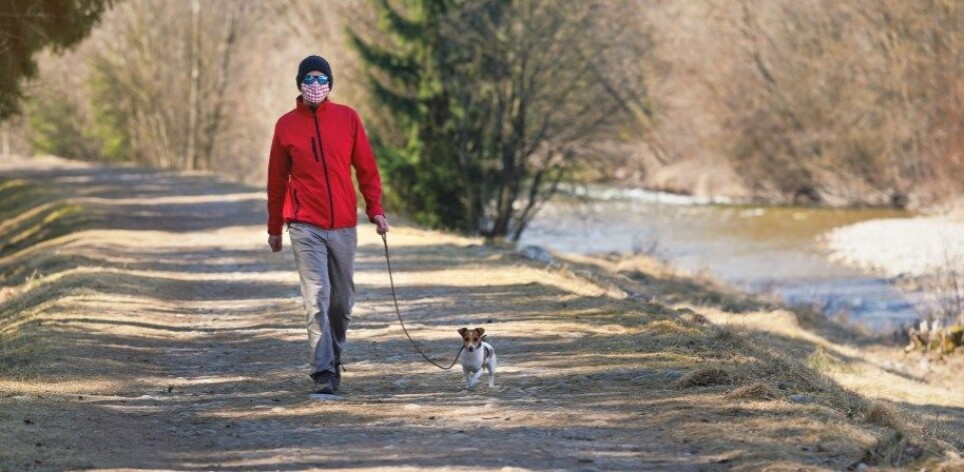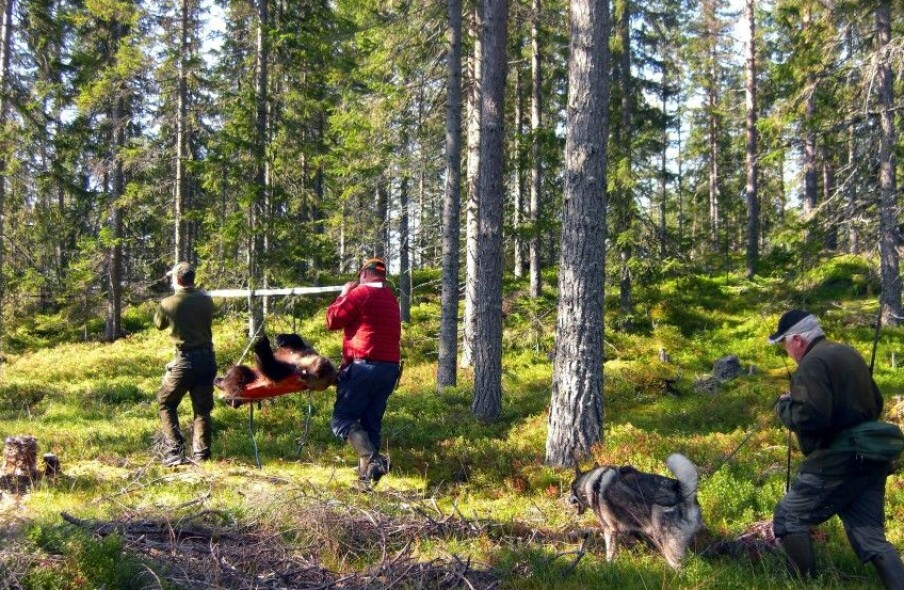This article is produced and financed by the Norwegian University of Life Sciences (NMBU) - read more

Outdoor spaces and nature combat depression during COVID-19
New research shows governments should allow people to spend time outdoors to protect their mental health in the event of new lockdown measures.
A new NMBU-partnered study shows that people with access to outdoor spaces during the first COVID-19 lockdown were less likely to show symptoms of depression. Those who could see nature from their homes maintained a more positive mood during the lockdown.
The results strongly indicate that governments should allow their populations to spend time outdoors in the event that new lockdown measures are imposed in the near future, according to the researchers.
“Spending time outdoors has a protective effect on mental health. Restoring and expanding green space in urban areas increases the resilience of cities in the face of pandemics,” says Erik Gómez-Baggethun, Professor at the Norwegian University of Life Sciences and co-author of the study.
The researchers assessed the mental health status of 6769 people from 77 countries during the first wave of COVID-19 in Europe (March-May 2020). Voluntary participants answered questions on their behaviour and mental health status during severe measures that restricted their mobility during the lockdown.

“The main conclusion is that people who were under the strictest lockdown during the first wave of COVID-19, like those who were only allowed to go out for work or essentials purchases, as was the case of Italy and Spain, were more likely to show symptoms compatible with depression and anxiety, compared to countries with more relaxed lockdowns,” explains Sarai Pouso, leader of the study from the Basque technology center AZTI.
No difference between limited and unlimited time outdoors
No significant differences were found between the mental health status in countries where only limited outdoor activities were allowed during lockdown (e.g. UK) and in countries where outdoor activities were not limited (as long as social distancing measures were adhered to), such as Norway.
"This result implies that, under stressful circumstances such as lockdown, allowing people to spend some time outdoors can help reduce the probability of suffering from mental disorders," conclude the researchers from Spain (AZTI), UK (University of Exeter) and Norway (Norwegian University of Life Sciences).
The study analyzed the case of Spain in greater detail, a country in which outdoor activities such as walking or sports were totally forbidden for a period in March 2020.
“The results indicate that having access from the home to outdoor spaces, like a garden or balcony, and having window views to open spaces or natural elements like the coast, parks or a forest, decreased the probability of showing compatible symptoms with depression in Spain. Furthermore, people with access to outdoor spaces and with views of nature managed to maintain a more positive mood during lockdown,” adds AZTI’s María C. Uyarra.
Women and young people more likely to experience symptoms of depression and anxiety
Looking at different population subgroups, women and young people were more likely to experience symptoms of depression and anxiety. The researchers stress that these results are, however, shaped by the characteristics of the sample obtained.
“The study does not include data on certain groups that may have suffered the consequences of isolation in a particularly negative way, such as children or elder people,” says Mat White from the University of Exeter in the UK.
“In summary, this study shows that the strict lockdown isolation to which certain populations were exposed to, like those living in Spain, had a negative effect on their mental health. However, there is no data to show whether these symptoms have been persistent or if they disappeared once the lockdown measures ended,” concludes Sarai Pouso.
Urban development should allow for contact with nature
The study proposes that future urban development should pay special attention to the inclusion of elements that would enable people to have contact with nature, such as more green areas in public spaces, as well as special attention to the most vulnerable sectors of the population.
“This research is important so that future planners take into account that is crucial for people to have equal access to high-quality blue and green environments. We have now contributed to a robust and compelling body of evidence that tells us this access can both prevent and treat mental health issues, especially in urban areas. This is particularly key in the context of a pandemic, but actually it should be a planning priority that could improve our health, regardless of COVID-19,” adds Lora E. Fleming, director of the European Centre for Environment and Human Health, University of Exeter.
Reference:
Sarai Pouso mfl.: Contact with blue-green spaces during the COVID-19 pandemic lockdown beneficial for mental health, Science of The Total Environment, 2021.


































